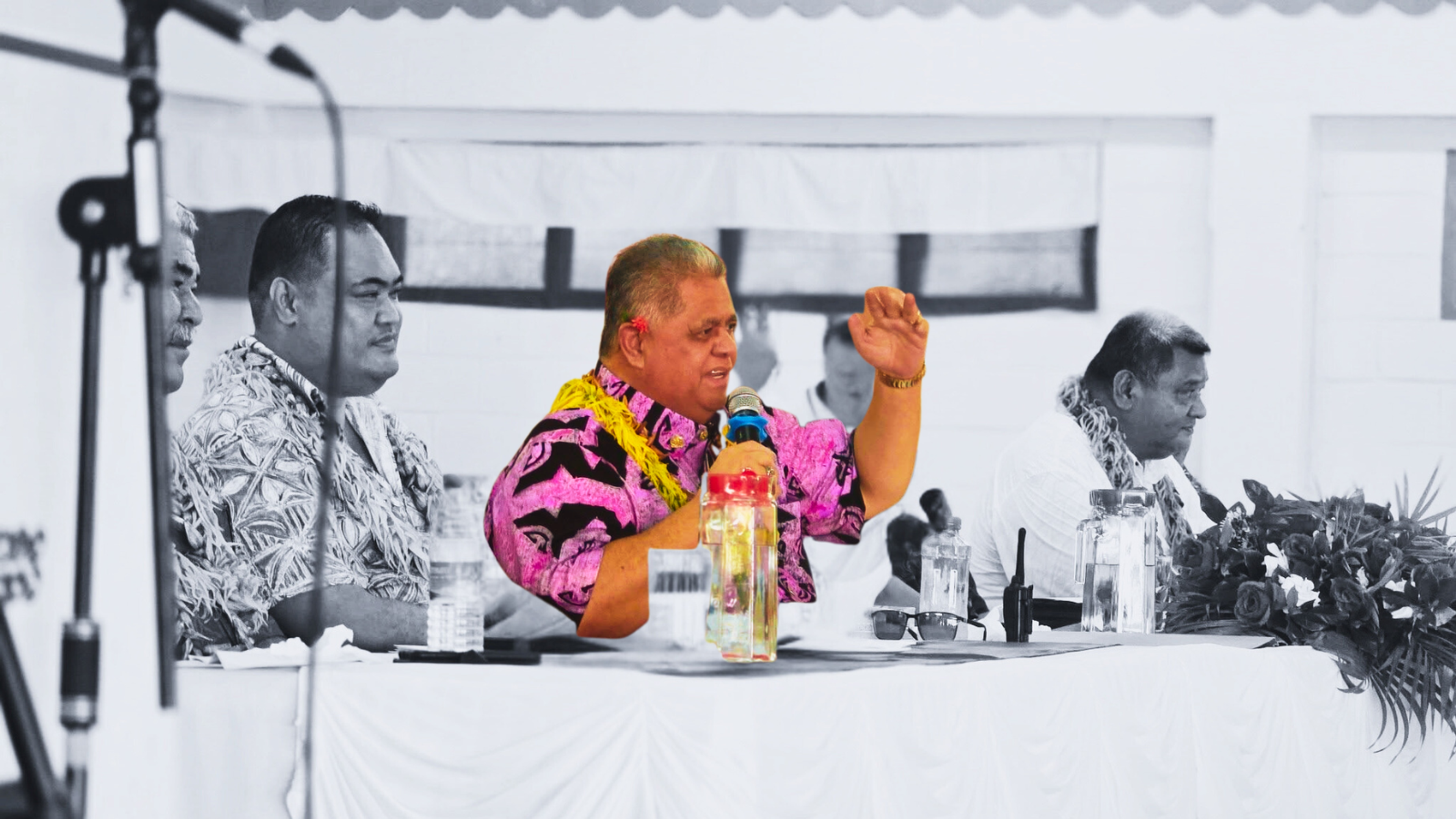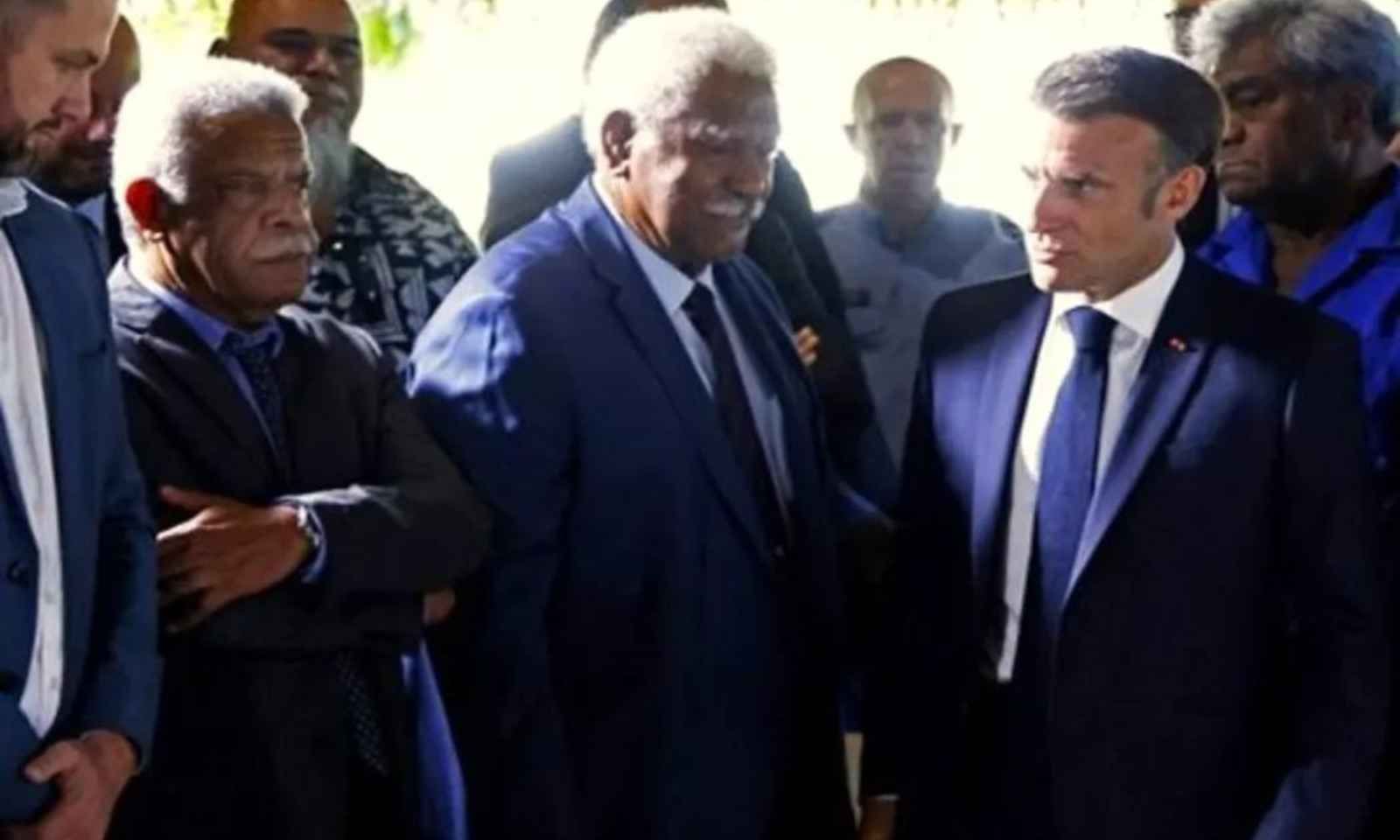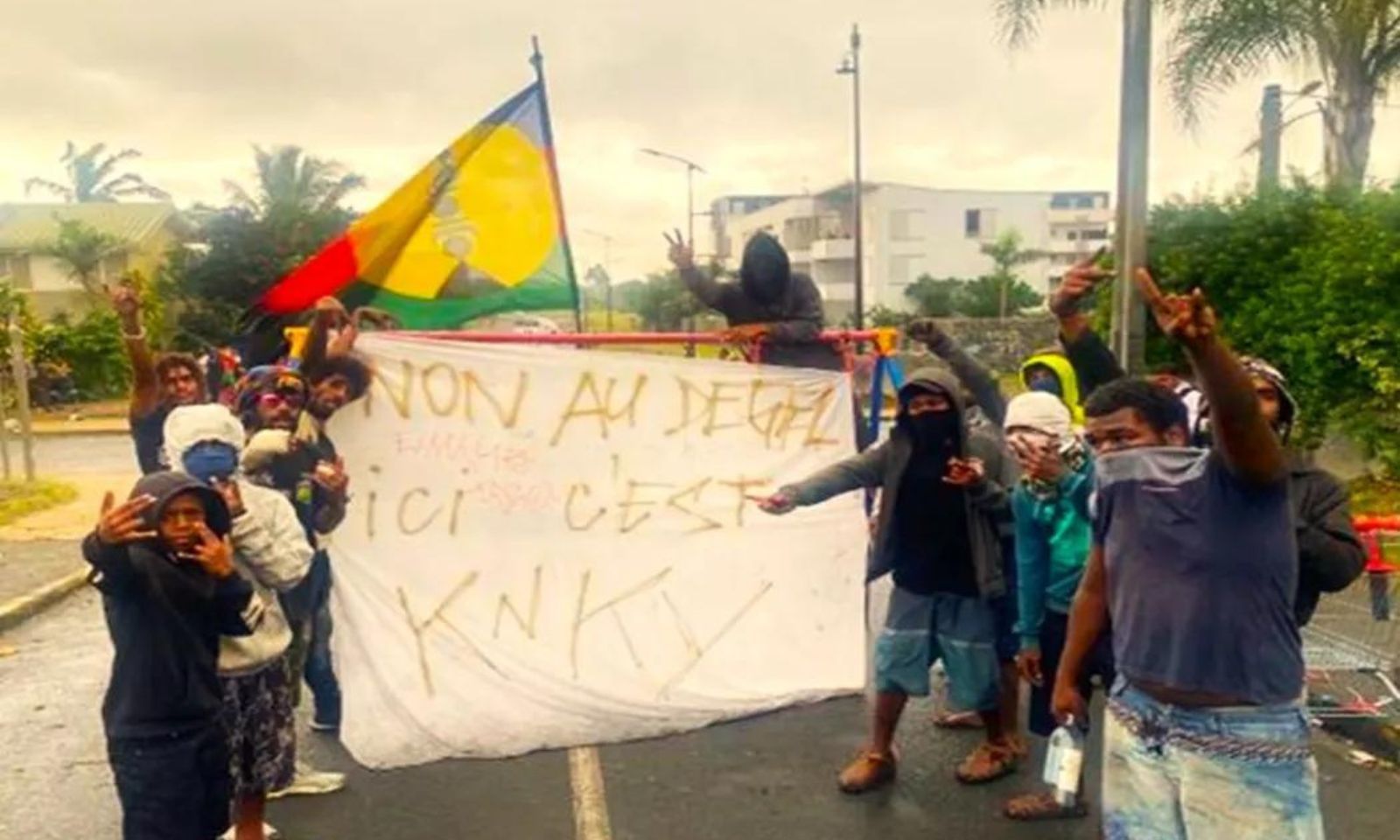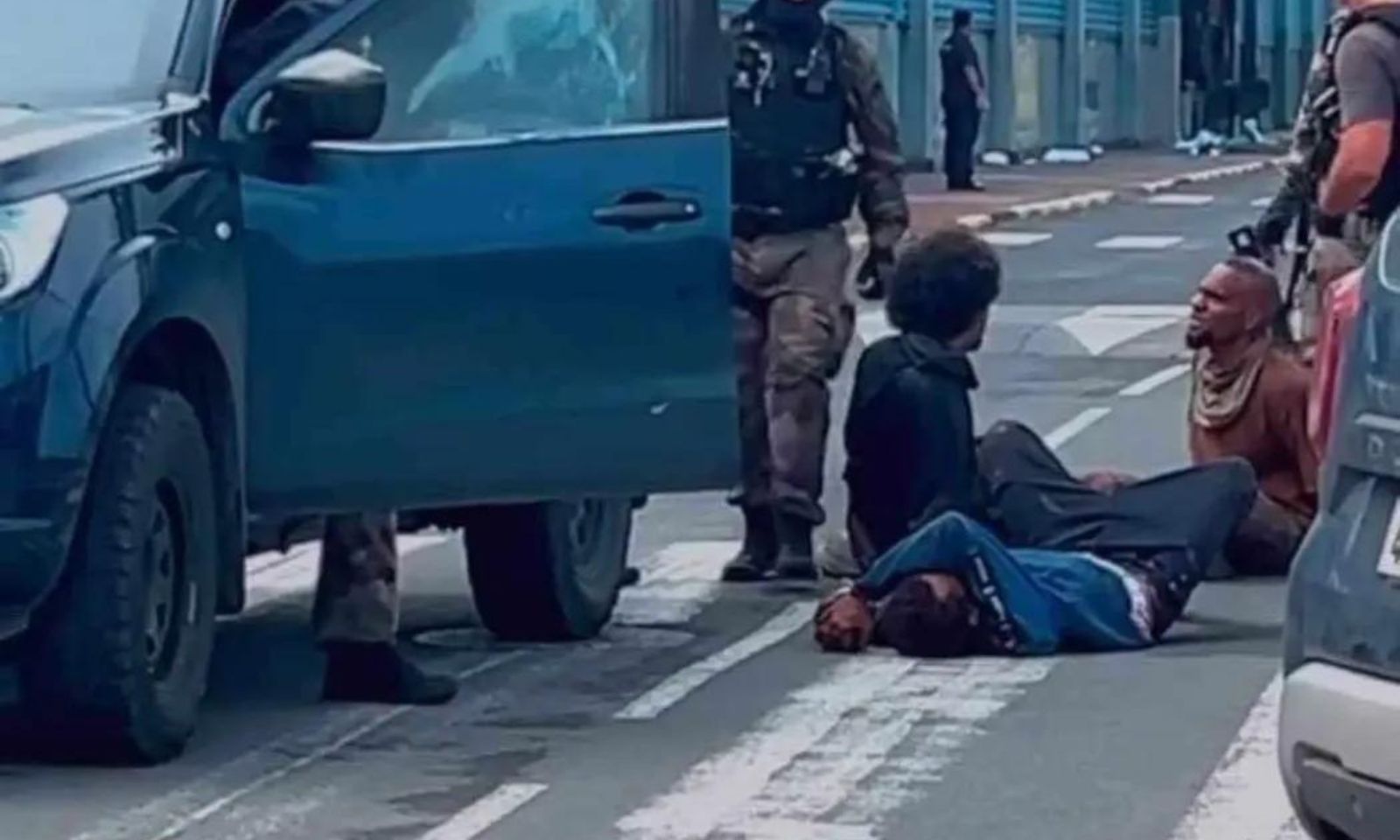

From left, top (clockwise): New Caledonia President Louis Mapou, pro-independence leader Jimmy Naouna, French President Emmanuel Macron and Chinese President Xi Jingping.
Photo/supplied
New Caledonia crisis: Does France fear China will dominate Pacific colonies?
President Emmanuel Macron's ambitions to expand French influence in the Pacific amid growing Chinese presence could be put at risk, the experts warn.




New Zealand-United States minerals talks spark concerns over Pacific seabed mining




New Zealand-United States minerals talks spark concerns over Pacific seabed mining
If you think the French Empire - powerful in the 19th and 20th centuries - no longer exists, you may want to think again.
Thirteen colonies fly the French flag and speak the French language today. Independence has not yet come to these territories, and New Caledonia is among them.
Located less than 2400km north of Aotearoa New Zealand, New Caledonia has a population of 272,000 (2019 Census) with 40 per cent the Indigenous Kanaks.
The Pacific island nation is reeling from political unrest following the 13 May protests, led by pro-independence supporters, in the capital Noumēa last month.
At least seven people, including three young Kanaks, were killed and hundreds injured after the deadly and destructive riots and clashes between the protesters and police in the city. More than 250 people have been arrested by the police.
President Emmanuel Macron sent 3000 soldiers from Paris to quell the unrest and says they will remain in Noumēa until the Olympic Games which France will host from 26 July.
But the experts warn a heavy-handed response to the protests will backfire in a region where decolonisation was expected.
Macron also lifted a 13-day state of emergency he had imposed on the territory on 15 May.

President Emmanuel Macron meets with New Caledonia's political leaders during a visit to Noumēa on 23 May, 10 days after the deadly riots in the city. Photo/supplied
New Caledonia is governed by a 54-member Territorial Congress, a legislative body composed of members of three provincial assemblies, led by President Louis Mapou. France is represented in the territory by a high commissioner.
The Noumēa Accord, signed by the French government in 1998, promised to increase political power to New Caledonia and the Kanaks over a 20-year transition period.
So, how did a Pacific tourist hotspot become the scene of a war zone? President Macron had announced on the eve of the protests his plans for electoral reform in New Caledonia.
His strategy would allow thousands more French residents who live in New Caledonia for 10 years or more to vote. His reason for the move: the measure is needed to improve democracy in the French territory. Most of the population identifies as European and is mainly French.
Enter the pro-independence movement: Leaders of the Kanaks want the reform thrown out. They fear Macron’s plans will dilute their voting power and majority.
Several experts warn Macron’s reform will also make it harder for any future referendum on independence.
Macron has maintained that his voting reform had “democratic legitimacy” after being passed by Paris lawmakers.
He told journalists in Paris there was no doubt over the legitimacy of a 2021 referendum that showed an “overwhelming majority against independence”.
But pro-independence leader Jimmy Naouna told PMN News they boycotted the vote citing the Covid-19 pandemic. He added that they sought a postponement but it was ignored by France.
Local leaders had called for the voting reform to be suspended to give time for a broader dialogue over the future of the territory.
Political commentators said the immediate priority was to restore calm, reclaim areas hit by violence and disorder, and help bring about political dialogue in New Caledonia.
Head of Pacific Studies at the University of Canterbury, Professor Steve Ratuva, told PMN News he was concerned about the reaction from Pacific countries.
“Very muted. The anti-French resistance has been going on for years and will continue into the future and can get worse.
“France’s reaction can make things worse and could inspire red future rebellion.”
Ratuva said it seemed to him that France was also worried about recent anti-French moves in former colonies in Africa and did not want the same thing happening in New Caledonia.
At its peak in 1812, France had 130 departments, a population of more than 44 million people, and ruled over 90 million subjects throughout Europe and in its overseas colonies, the French empire maintained an extensive military presence in Germany, Italy, Spain, and Poland with Austria and Prussia its nominal allies.
During the 19th and 20th centuries, the French colonial empire was the second largest in the world, only behind the British empire. France’s territories extended over 13.5 million square kilometres of land in the 1920s and 1930s.
France’s other Pacific territories include Tahiti (French Polynesia) and Wallis and Futuna.

Pro-independence supporters rally in Noumēa. Photo/supplied
New Caledonia was annexed by France in 1853 and became a territory of the European superpower in 1946.
New Caledonia holds the status of a sui generis collectivity, granting it a measure of autonomy while maintaining a colonial relationship with Paris. The French territory owns 25 per cent of the world’s nickel resources.
Its Kanak leaders claim France and its Western partners have been exploiting the country’s nickel industry for decades - the reality, they say, is that France will never let go of New Caledonia because of its annual billions of dollars in commitment to the European settlers in the colony.
They have openly voiced their interest in working with China. New Caledonia is strategically important for French domination of its Pacific island nations. France has a military base on Kanak land.
The experts said France feared an independent New Caledonia would move closer to China's growing influence in the region. Beijing has built economic and political ties with several Pacific countries including New Zealand, Australia, Fiji, Papua New Guinea, the Solomon Islands, Kiribati, Samoa, Tonga, Vanuatu, and the Federated States of Micronesia.
China has also shifted its focus and financial support to the Melanesian Spearhead Group (MSG), formed in 1986 to back decolonisation for its member countries still under colonial rule, most notably the Front de Liberation Nationale Kanak et Socialiste (FLNKS) of New Caledonia.
MSG members PNG, Fiji, Vanuatu, and Solomons are at the centre of the contest between China and the United States and US allies, including New Zealand, Australia and France.
Last July, Macron visited Vanuatu, the first by a French leader since the island state gained independence from France and Britain in 1980. During his tour, he warned against China's "new imperialism" in the Pacific. China is Vanuatu's largest external creditor.
MSG leaders met in August to consider security cooperation with Beijing, however, no decision was made. But in a statement released last week, Vanuatu Prime Minister and MSG chair Charlot Salwai criticised France for the riots, demanding Macron drop the electoral reform.

Analysts warn a heavy-handed response to the protests will backfire in a region. Photo/supplied
Australian National University Pacific analyst Graeme Smith told Reuters that a crackdown by French police in Noumea could bolster China's weaponisation of the colonial legacy of Western nations in the Pacific.
Smith said this included French and American nuclear testing.
"It will play very well because China has been discovering some of the colonial history of the Pacific," he told Reuters.
Lowy Institute Pacific fellow Oliver Nobetau, a former PNG government adviser on international security deals, said France was trying to re-emerge as a Pacific partner and this would not help their image.
PNG gained independence from Australia in 1975. It has secured a new defence agreement with Washington and growing trade ties with Beijing.
Macron also visited PNG last year, another first for France, and he said PNG would balance its response to the New Caledonia crisis with its economic relationship with France.
But Naouna, a FLNKS leader, said the presence of France in New Caledonia had to be eliminated, adding that the French parliament’s decision on 13 May to amend the constitution undermined the Kanaky efforts towards self-determination and independence.
He said France was repeating its colonial tactics in the 1800s - that the imperial government was intentionally sending more French settlers to make the indigenous Kanak people a minority.
Whether Macron had greatly erred since the referendum, to Naouna and the pro-independence Kanaks, it looked like he was giving them the "middle finger".
French colonies today include Madagascar in Africa, the Caribbean islands of Guadeloupe, Martinique, Saint Barthēlemy, Saint Martin, Guiana in South America, Saint Pierre and Miquelon in North America, and the uninhabited coral atoll Clipperton Island in the eastern Pacific Ocean.